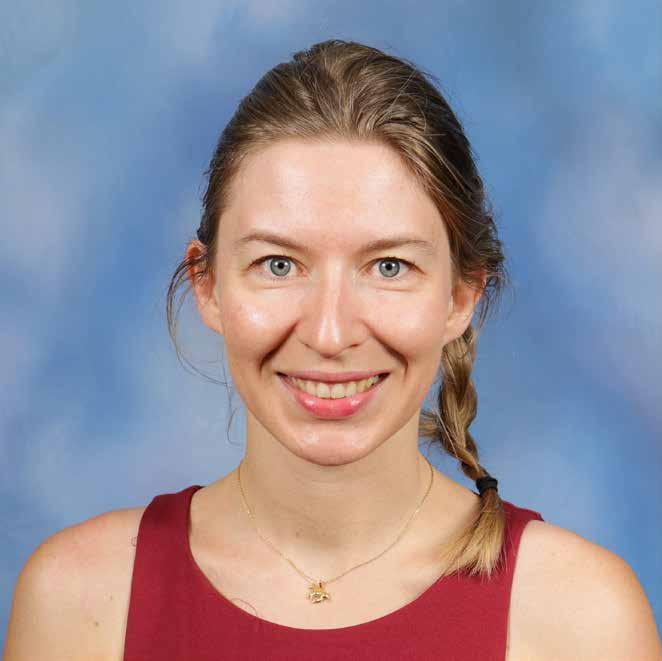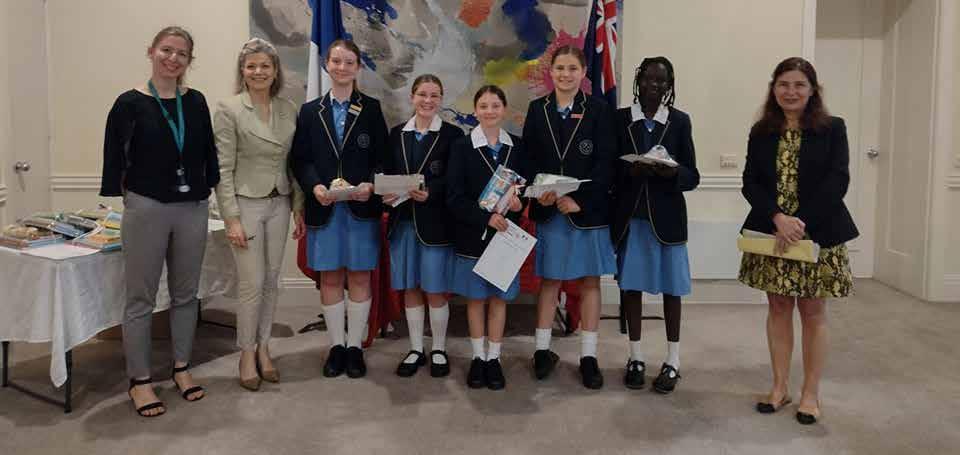
1 minute read
Languages Update
LANGUAGES LEADER, ALIZEE BOURGAULT
In the last week of Term 4, the winners of the Francophonie and Bastille Day video competitions attended their long-awaited prize ceremony.
Advertisement
The event took place at the Honorary Consulate General of France, near the Botanical Gardens. It was exciting stepping onto a French landmark in Melbourne and seeing the French heritage of the building. Winners from other schools were also present, and we were able to enjoy some quiche Lorrain. We were welcomed by Myriam Wilye, Honorary Consul General of France, who reminded us how much we grow when learning about other cultures and congratulated everyone on their resilience during the last 2 years. The prizes were awarded by Veronique Duche – chair of French studies at the University of Melbourne. We were impressed how much students learnt about the variety of Francophone countries. Our Year 7 students created a video on Senegal, and our Year 8 student completed one on Olympe de Gouge. The students received prize packs of French notebooks, pens and activity books.

Sylvie Ottinger spoke a few words on behalf of the students: “It’s a great honour to be here today representing St Aloysius College from North Melbourne. We’ve learnt a lot about Senegal from this video competition, and we really enjoyed researching, writing, and presenting our final piece. Senegal is located in West Africa and is home to many species of plants and animals. This vibrant country is Frenchspeaking and has been since they were colonised it way back in 1659, eventually becoming a French colony in 1859. Overall, this contest has created an opportunity for us to expand our knowledge, and it has been a pleasure to participate.”
All Year 7 and 8 students in Italian also learnt a poem and participated in an internal competition. This internal competition will help them prepare for the Dante Alighieri Italian Poetry Competition which they will participate in later years. Dante Alighieri was renowned Italian poet and creator of the Divine Comedy, and it is wonderful that our students can practise their language skills through these poems.










